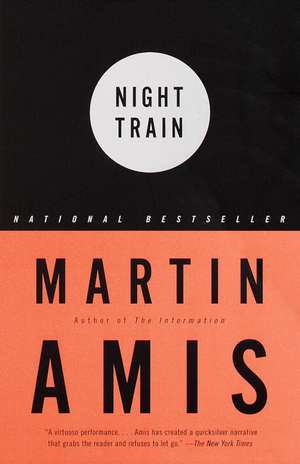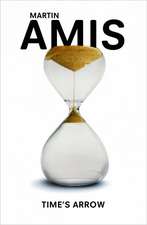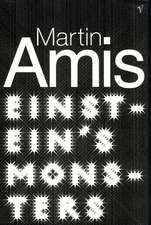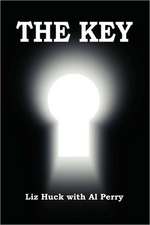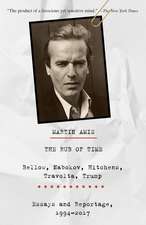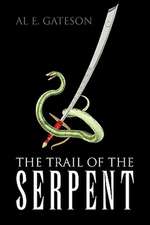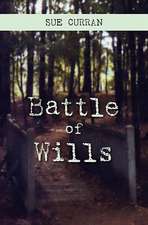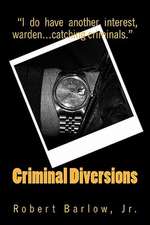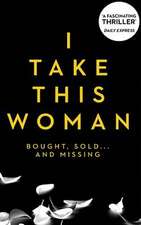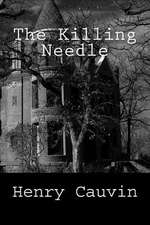Night Train
Autor Martin Amisen Limba Engleză Paperback – 31 dec 1998
When Jennifer Rockwell, darling of the community and daughter of a respected career cop--now top brass--takes her own life, no one is prepared to believe it. Especially her father, Colonel Tom. Homicide Detective Mike Hoolihan, longtime colleague and friend of Colonel Tom, is ready to "put the case down." Suicide. Closed. Until Colonel Tom asks her to do the one thing any grieving father would ask: take a second look.
Not since his celebrated novel Money has Amis turned his focus on America to such remarkable effect. Fusing brilliant wordplay with all the elements of a classic whodunit, Amis exposes a world where surfaces are suspect (no matter how perfect), where paranoia is justified (no matter how pervasive), and where power and pride are brought low by the hidden recesses of our humanity.
| Toate formatele și edițiile | Preț | Express |
|---|---|---|
| Paperback (2) | 51.28 lei 24-35 zile | +15.92 lei 4-10 zile |
| Vintage Publishing – oct 1998 | 51.28 lei 24-35 zile | +15.92 lei 4-10 zile |
| Vintage Books USA – 31 dec 1998 | 105.00 lei 3-5 săpt. |
Preț: 105.00 lei
Nou
Puncte Express: 158
Preț estimativ în valută:
20.09€ • 20.76$ • 16.72£
20.09€ • 20.76$ • 16.72£
Carte disponibilă
Livrare economică 04-18 martie
Preluare comenzi: 021 569.72.76
Specificații
ISBN-13: 9780375701146
ISBN-10: 0375701141
Pagini: 176
Dimensiuni: 132 x 202 x 13 mm
Greutate: 0.2 kg
Ediția:Vintage Intl.
Editura: Vintage Books USA
ISBN-10: 0375701141
Pagini: 176
Dimensiuni: 132 x 202 x 13 mm
Greutate: 0.2 kg
Ediția:Vintage Intl.
Editura: Vintage Books USA
Notă biografică
Martin Amis is the best-selling author of several books, including London Fields, Money, The Information, and, most recently, Experience. He lives in London.
Recenzii
"A dazzling smart-bomb of a novel that whistles into the police-procedural structure only to blow it to bits.... [Amis] proves he can do autopsies as clinically as Patricia Cornwell and female detectives as convincingly as Lynda La Plante."
--Wall Street Journal
"A virtuoso performance.... Amis has created a quicksilver narrative that grabs the reader and refuse to let go."
--New York Times
--Wall Street Journal
"A virtuoso performance.... Amis has created a quicksilver narrative that grabs the reader and refuse to let go."
--New York Times
Extras
The Psychological Autopsy
Suicide is the night train, speeding your way to darkness. You won't get there so quick, not by natural means. You buy your ticket and you climb on board. That ticket costs everything you have. But it's just a one-way. This train takes you into the night, and leaves you there. It's the night train.
Now I feel that someone is inside of me, like an intruder, her flashlight playing. Jennifer Rockwell is inside of me, trying to reveal what I dont want to see.
Suicide is a mind-body problem that ends violently and without any winner.
I've got to slow this shit down. I've got to slow it all down.
What I'm doing here, with my ballpoint, my tape recorder, and my PC--its the same as what Paulie No was doing in the ME's office, with his clamp, his electric saw, his trayfull of knives. Only we call it the psychological autopsy.
I can do this. I am trained to do this.
Recall:
For a time, though only a short time, and only once to my face, they used to call me "Suicide Mike." This was thought to be too offensive, even for downtown, and they soon abandoned it. Offensive not to the poor bastards found slumped in carseats in sealed garages, or half submerged in crimson bathtubs. Offensive to me: It meant I was fool enough to take any bum call. Because a suicide didn't do a damn thing for your solve rate or your overtime. On the midnights the phone would ring and Mac or O'Boye would be pouting over the cupped receiver and saying, How about you handle this one, Mike? Its an s.d. and I need dough for my mother's operation. A suspicious death--not the murder he craves. For little-boy-lost here also believes that suicides are an insult to his forensic gifts. He wants a regular perpetrator. Not some schmuck who, a century ago, would have been buried at the four-corners, under a heap of rocks, with a stake through his heart. Then for a time--a short time, as I say--they'd hold out the phone and deadpan, It's for you, Mike. Its a suicide. And then I'd yell at them. But they weren' t wrong, maybe. Maybe it moved and compelled me more than it did them, to crouch under the bridge on the riverbank, to stand in a rowhouse stairwell while a shadow rotated slowly on the wall, and think about those who hate their own lives and choose to defy the terrible providence of God.
As part of my job I completed, as many others did, the course called "Suicide: Harsh Conclusions," at Pete, and followed that up, again on city time, with the refresher lecture series on "Patterns of Suicide," at CC. I came to know the graphs and diagrams of suicide, their pie segments, their concentric circles, their color codes, their arrows, their snakes and ladders. With my Suicide Prevention tours, back in the Forty-Four, plus the hundred-some suicides I worked in the Show, I came to know not just the physical aftermaths but the basic suicide picture, ante mortem.
And Jennifer doesn't belong here. She doesn't belong.
I have my folders out on the couch, this Sunday morning. Going through my notes to see what I got:
-In all cultures, risk of suicide increases with age. But not steadily. The diagonal graph-line seems to have a flattish middle section, like a flight of stairs with a landing. Statistically (for what stats are worth around here), if you make it into your twenties, you're on level ground until the risk bump of the midlife.
Jennifer was twenty-eight.
- About 50 percent of suicides have tried before. They are parasuicides or pseudosuicides. About 75 percent give warning. About 90 percent have histories of egression--histories of escape.
Jennifer hadn't tried before. So far as I know, she did not give warning. All her life she saw things through.
- Suicide is very, very means-dependent. Take the means away (toxic domestic gas, for instance) and the rate plummets.
Jennifer didn't need gas. Like many another American, she owned a gun.
These are my notes. What about their notes, and what percentage leave them? Some studies say 70 percent, others say 30. Suicide notes, it is assumed, are often spirited away by the decedents loved ones. Suicides, as we have seen, are often camouflaged--smudged, snowed.
Axiom: Suicides generate false data.
Jennifer, apparently, did not leave a suicide note. But I know she wrote one. I just feel this.
It may run in families but it's not inherited. It is a pattern, or a configuration. It's not a predisposition. If your mother kills herself, it wont help, and it opens a door . . .
Here are some other do's and dont's. Or dont's, anyway:
Don't work around death. Don't work around pharmaceuticals.
Don't be an immigrant. Don't be a German, just off the boat.
Don't be Romanian. Don't be Japanese.
Don't live where the sun doesn't shine.
Don't be an adolescent homosexual: One in three will attempt.
Don't be a nonagenarian Los Angelean.
Don't be an alcoholic. It's suicide on the installment plan, anyway.
Don't be a schizophrenic. Disobey those voices in your head.
Don't be depressed. Lighten up.
Don't be Jennifer Rockwell.
And don't be a man. Don't be a man, whatever you do. Tony Silvera was, of course, talking through his ass when he said that suicide was a "babe thing." To the contrary, suicide is a dude thing. Attempting is a woman thing: Theyre more than twice as likely to do that. Completing is a man thing: They're more than twice as likely to do that. There's only one day in the year when its safer to be male. Mother's Day.
Mother's Day is the day for felo de se. How come? I wonder. Is it the all-you-can-eat brunch at the Quality Inn? No. The suicides are the women who skipped the lunch. They're the women who skipped the kids.
Don't be Jennifer Rockwell.
The question is: But why not?
Suicide is the night train, speeding your way to darkness. You won't get there so quick, not by natural means. You buy your ticket and you climb on board. That ticket costs everything you have. But it's just a one-way. This train takes you into the night, and leaves you there. It's the night train.
Now I feel that someone is inside of me, like an intruder, her flashlight playing. Jennifer Rockwell is inside of me, trying to reveal what I dont want to see.
Suicide is a mind-body problem that ends violently and without any winner.
I've got to slow this shit down. I've got to slow it all down.
What I'm doing here, with my ballpoint, my tape recorder, and my PC--its the same as what Paulie No was doing in the ME's office, with his clamp, his electric saw, his trayfull of knives. Only we call it the psychological autopsy.
I can do this. I am trained to do this.
Recall:
For a time, though only a short time, and only once to my face, they used to call me "Suicide Mike." This was thought to be too offensive, even for downtown, and they soon abandoned it. Offensive not to the poor bastards found slumped in carseats in sealed garages, or half submerged in crimson bathtubs. Offensive to me: It meant I was fool enough to take any bum call. Because a suicide didn't do a damn thing for your solve rate or your overtime. On the midnights the phone would ring and Mac or O'Boye would be pouting over the cupped receiver and saying, How about you handle this one, Mike? Its an s.d. and I need dough for my mother's operation. A suspicious death--not the murder he craves. For little-boy-lost here also believes that suicides are an insult to his forensic gifts. He wants a regular perpetrator. Not some schmuck who, a century ago, would have been buried at the four-corners, under a heap of rocks, with a stake through his heart. Then for a time--a short time, as I say--they'd hold out the phone and deadpan, It's for you, Mike. Its a suicide. And then I'd yell at them. But they weren' t wrong, maybe. Maybe it moved and compelled me more than it did them, to crouch under the bridge on the riverbank, to stand in a rowhouse stairwell while a shadow rotated slowly on the wall, and think about those who hate their own lives and choose to defy the terrible providence of God.
As part of my job I completed, as many others did, the course called "Suicide: Harsh Conclusions," at Pete, and followed that up, again on city time, with the refresher lecture series on "Patterns of Suicide," at CC. I came to know the graphs and diagrams of suicide, their pie segments, their concentric circles, their color codes, their arrows, their snakes and ladders. With my Suicide Prevention tours, back in the Forty-Four, plus the hundred-some suicides I worked in the Show, I came to know not just the physical aftermaths but the basic suicide picture, ante mortem.
And Jennifer doesn't belong here. She doesn't belong.
I have my folders out on the couch, this Sunday morning. Going through my notes to see what I got:
-In all cultures, risk of suicide increases with age. But not steadily. The diagonal graph-line seems to have a flattish middle section, like a flight of stairs with a landing. Statistically (for what stats are worth around here), if you make it into your twenties, you're on level ground until the risk bump of the midlife.
Jennifer was twenty-eight.
- About 50 percent of suicides have tried before. They are parasuicides or pseudosuicides. About 75 percent give warning. About 90 percent have histories of egression--histories of escape.
Jennifer hadn't tried before. So far as I know, she did not give warning. All her life she saw things through.
- Suicide is very, very means-dependent. Take the means away (toxic domestic gas, for instance) and the rate plummets.
Jennifer didn't need gas. Like many another American, she owned a gun.
These are my notes. What about their notes, and what percentage leave them? Some studies say 70 percent, others say 30. Suicide notes, it is assumed, are often spirited away by the decedents loved ones. Suicides, as we have seen, are often camouflaged--smudged, snowed.
Axiom: Suicides generate false data.
Jennifer, apparently, did not leave a suicide note. But I know she wrote one. I just feel this.
It may run in families but it's not inherited. It is a pattern, or a configuration. It's not a predisposition. If your mother kills herself, it wont help, and it opens a door . . .
Here are some other do's and dont's. Or dont's, anyway:
Don't work around death. Don't work around pharmaceuticals.
Don't be an immigrant. Don't be a German, just off the boat.
Don't be Romanian. Don't be Japanese.
Don't live where the sun doesn't shine.
Don't be an adolescent homosexual: One in three will attempt.
Don't be a nonagenarian Los Angelean.
Don't be an alcoholic. It's suicide on the installment plan, anyway.
Don't be a schizophrenic. Disobey those voices in your head.
Don't be depressed. Lighten up.
Don't be Jennifer Rockwell.
And don't be a man. Don't be a man, whatever you do. Tony Silvera was, of course, talking through his ass when he said that suicide was a "babe thing." To the contrary, suicide is a dude thing. Attempting is a woman thing: Theyre more than twice as likely to do that. Completing is a man thing: They're more than twice as likely to do that. There's only one day in the year when its safer to be male. Mother's Day.
Mother's Day is the day for felo de se. How come? I wonder. Is it the all-you-can-eat brunch at the Quality Inn? No. The suicides are the women who skipped the lunch. They're the women who skipped the kids.
Don't be Jennifer Rockwell.
The question is: But why not?
Textul de pe ultima copertă
Detective Mike Hoolihan has seen it all. A fifteen-year veteran of the force, she's gone from walking a beat, to robbery, to homicide. But one case - this case - has gotten under her skin. When Jennifer Rockwell, darling of the community and daughter of a respected career cop - now top brass - takes her own life, no one is prepared to believe it. Especially her father, Colonel Tom. Homicide Detective Mike Hoolihan, longtime colleague and friend of Colonel Tom, is ready to "put the case down". Suicide. Closed. Until Colonel Tom asks her to do the one thing any grieving father would ask: take a second look. Not since his celebrated novel Money has Amis turned his focus on America to such remarkable effect. Fusing brilliant wordplay with all the elements of a classic whodunit, Amis exposes a world where surfaces are suspect (no matter how perfect), where paranoia is justified (no matter how pervasive), and where power and pride are brought low by the hidden recesses of our humanity.
Descriere
Under Martin Amis's expert guidance, "Night Train" escalates from a captivating whodunit into a dazzling inquest into perpetrators and punishers, pattern and paranoia, innocence and evil.
